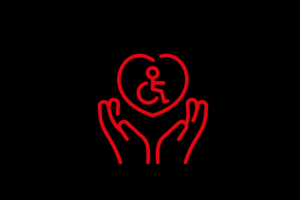Autistic people are just as capable of achieving great success as non-autistic people and have done so in a wide variety of activities. From acting to game design, music to sports; you will find talented autistic people in lots of places.
There are some famous historical figures you will likely have heard of who we think may have been autistic based on what we know about their lives, such as Albert Einstein, Nikola Tesla, Charles Darwin, Emily Dickinson and Mozart. There’s lots of evidence to suggest that these people might have been autistic, but we can’t say for sure.
Negative views of autism and stereotyping means that some famous people might not want to tell everyone that they are autistic. However some famous autistic people use their voice to campaign for more autism acceptance and visibility in their field of work.
Here are some famous autistic people you might have heard of:
Greta Thunberg
Climate Activist

“If you get to the right circumstance, if you are around the right people, if you get the adaptations that you need and you feel you have a purpose, then [autism] can be something you can use for good. And I think that I’m doing that now.”
Greta is a Swedish activist known for challenging world leaders to take immediate action to mitigate climate change. As young as 15 she would picket the Swedish Parliament on weekends by holding up a sign reading Skolstrejk för Klimatet (School Strike for Climate).
She has been nominated for the Nobel Peace prize in 2019, 2020, 2021, & 2022. The youngest ever Time Person of the Year and a place on Forbes list of The World’s 100 Most Powerful Women.
Greta does not view her autism as a deficit and instead she calls it her “superpower”.
She thinks that many of the activists she is friends with are autistic and they all have one thing in common- truth telling: “I know lots of people who have been depressed, and then they have joined the climate movement or Fridays for Future and have found a purpose in life and found friendship and a community that they are welcome in.” She considers the best things that have resulted from her activism are friendships and happiness.
James McClean
Professional Footballer

“Now that I have my official diagnosis, I’m proud of it because I am the person I am and it’s served me fine. So I’m proud of it.”– James McClean
James McClean is the first active professional footballer in the UK to reveal his autism diagnosis, that does not mean he is the first Autistic Footballer, instead he is the first to go public with his diagnosis. Hopefully paving the way for others to be themselves in the future too.
Neurodiverse Sport is a Website and Blog page from many Neurodivergent athletes: https://www.neurodiversesport.com/blog
Tylan Grant
Actor

“I think that identity is important, not necessarily labels, but the way that you identify as a person. I’ve come to a point where I’m really comfortable with who I am and I’m very proud to be black and autistic.”
Tylan was the first openly autistic actor in a mainstream TV drama. He plays Brooke, a non-binary autistic character in the Channel 4 series ‘Hollyoaks’. Tylan has spoken about the importance of authentic autistic representation and the positive impact this can have. He says his character has raised awareness of “not only being autistic but being Black” as well as being “in the autistic queer community”. Tylan himself came out as non-binary in 2020 and as trans in 2023.
Chloé Hayden
Actor, Writer and Disability Activist

“Neurodiversity means I am incredibly creative, and I don’t have this invisible, socially constructed box that most of the population has decided on. My ideas, my art, the way I showcase my work, all that is limited only to my imagination, not what society dictates. It means that when something is important to me, I’m going to know more about it, and be better at it, than just about anyone else in the world.”
Chloé is an Australian actor most well known for her role as the autistic character of Quinni in the Netflix drama Heartbreak High. She is both autistic and ADHD and campaigns for more acceptance and accessibility for neurodivergent people. Chloé is passionate about challenging stereotypes and increasing authentic autistic representation in the media.
As well as acting, Chloé also creates content for YouTube and TikTok and has written a book celebrating neurodivergence called ‘Different, Not Less’.
Sam Holness
Triathlete

“Staying motivated is easy for me. I love the structure and repetitive nature of training. Honestly, it is ideal for people with autism who are often good at undertaking repetitive tasks. Training keeps me focused and gives me purpose.”
In October 2022 Sam became the first openly autistic athlete to compete at the Ironman World Championships in Kona, Hawaii. He completed the race in 13 hours and 5 minutes, which was a World Record! Sam is from London and has given talks about being an autistic athlete at his local colleges and schools. He is passionate about inspiring disabled young people to take up sport and views autism as the key to his success.
Satoshi Tajiri
Creator of Pokemon

“As a teenager, Satoshi developed a new interest in arcade games. He spent countless hours and money at arcades. He was also fascinated by how the machines themselves worked and, upon being gifted a Space Invaders arcade system (which was most likely already paid for because of how many 100-yen coins Satoshi put into it) he took it apart and painstakingly reassembled it in order to figure out how it worked. His interest led him to write a gaming magazine called Game Freak in the late 1980s. Work then began on his big idea – combining his fascination of bugs and insects with his special interest in gaming – to create a revolutionary, open world game. It took years of hard work, all of his money and he risked everything but the reward has more than paid off. Pokémon Red and Pokémon Blue (Pokémon Green in Japan) were simultaneously released into the world in 1996 and the largest franchise in the world was launched.” – Michael Barton
Further reading in his book: What Has Autism Ever Done For Us?
Satoshi Tajiri has never openly said he is autistic, but a lot of people do suspect he is. As we know the Pokemon universe continues to be a huge success and a special interest for many autistic young people around the world.
Jessica-Jane Applegate
Paralympic Swimmer

“In the water I found peace because when you’re swimming you have your ears covered and you can’t hear anything, so I would relax my mind and everything would feel okay.”
Jessica-Jane is a British Paralympic swimmer who has won a lot of medals, including gold at the London Paralympics in 2012. She really loves animals and fosters dogs as well as working at an animal rescue. Jessica-Jane campaigns for inclusion and equality in sport and has even been to the Houses of Parliament to talk about these issues.
some other famous autistic people you might have heard of too
-
- Stephen Wiltshire – Artist
-
- Armani Williams – NASCAR Driver
-
- Fern Brady – Comedian, Writer
-
- Slushii – Producer, Artist, DJ
-
- Tom Stoltman – World’s Strongest Man 2022
-
- Eminem – Rapper, Producer
-
- Dan Bull – YouTuber
-
- Paddy Considine – Actor
-
- Dan Aykroyd – Comedian, Singer, Actor, Writer (He played Ray Stantz in Ghostbusters)
-
- Adam Young – Lead Singer, Owl City
-
- Heather Kuzmich – Model
-
- Matt Haig – Author
-
- Susan Boyle – Singer
-
- Chris Packham – TV Presenter
-
- Anne Hegarty – Chaser from The Chase TV Show
-
- Anthony Hopkins – Actor
-
- Tim Burton – Movie Director
-
- Temple Grandin – Author and Academic
-
- Wentworth Miller – Actor
-
- Clay Marzo – Professional Surfer
But there are so many more not listed here!
Movies and TV shows featuring autistic characters
There has been a lot of pretty rubbish autistic representation in media in the past. Many characters in films and TV have been very stereotypical and have even had a negative impact on people’s understanding of what autism really is. Luckily this does seem to be getting better and authentic autistic representation is increasing.
-
- CBBC drama ‘A Kind of Spark’ is focused around Addie, an autistic young person who is played by autistic actor Lola Blue.
-
- In Netflix drama ‘Heartbreak High’, autistic character Quinni is played by Chloe Hayden who is also autistic.
-
- Rufus Whedon is a character in the TV series ‘Locke and Key’ and is played by autistic actor Coby Bird.
-
- In the ‘Monster High’ animated TV series the character of Twyla is autistic.
-
- In the TV series ‘Hollyoaks’, autistic character Brooke is played by autistic actor Tylan Grant.
Sometimes characters in shows might not be confirmed as autistic, but they seem really autistic and act and behave in ways that make us think that they are. Some examples of characters who are “autistic-coded” but might not actually be autistic are: Sheldon Cooper from ‘The Big Bang Theory’, Amelie Poulain from the movie ‘Amelie’, Maurice Moss from ‘The IT Crowd’ and Sherlock Holmes in the BBC series ‘Sherlock’.
Games featuring autistic characters

It’s not just film and TV where autistic representation matters. It appears that some game developers might be worried about ‘labelling’ characters as autistic. There are not many autistic video game characters, and often they are only confirmed as autistic after fans have made up their own theories and then questioned developers, instead of making it part of their identity when creating the character.
Another problem is that often autistic video game characters are shown to be lacking in empathy and unlikeable, for example Bioshock’s Dr Brigid Tenebaum, Warframe’s Rell or Patricia Tannis from Borderlands 2. These stereotypes are not great if you are looking for a character you feel a connection to.
There are however a couple of video game characters whose representation of autism is more positive:
Overwatch – Symmetra
Symmetra was confirmed as autistic in a comic, but in-game this was only made obvious in Overwatch 2. One of the developers, Joshi Zhang said “Autism comes in many shapes and forms; it’s about how you see and experience the world. I asked myself, how would her autism influence her experience on the battlefield? How much does she mask her autism? How does she stim?”. They have shown Symmetra’s autistic nature through some of her voice lines in the game:
Mei: Do you ever make snowflakes with your light?
Symmetra: Regularly. Their repetitive patterns bring peace to my mind.
Echo: When I don’t replicate human behaviors, I am misunderstood. Are my algorithms insufficient?
Symmetra: You operate on a level inaccessible to others. I do not see that as a weakness.
Apex Legends – Wattson
Wattson is depicted as having sensory differences, such as an aversion to loud noises, and also does a little clap stim when she deploys an electric fence. Her character description says “Though she could be completely distracted one moment and hyper-focused the next, electricity grounded her – its ordered, predictable flow made sense in a way the rest of the world didn’t.” When asked, writer Tom Cassiello said that Wattson is autistic and “proud of who she is”.
Autistic Musicians
Differences in auditory processing, love of patterns and rhythm, and the ability to hyperfocus are possibly some of the reasons why so many talented people who work in the music industry are also autistic.
Here is a playlist of songs that include autistic (or ‘likely’ autistic) artists:



